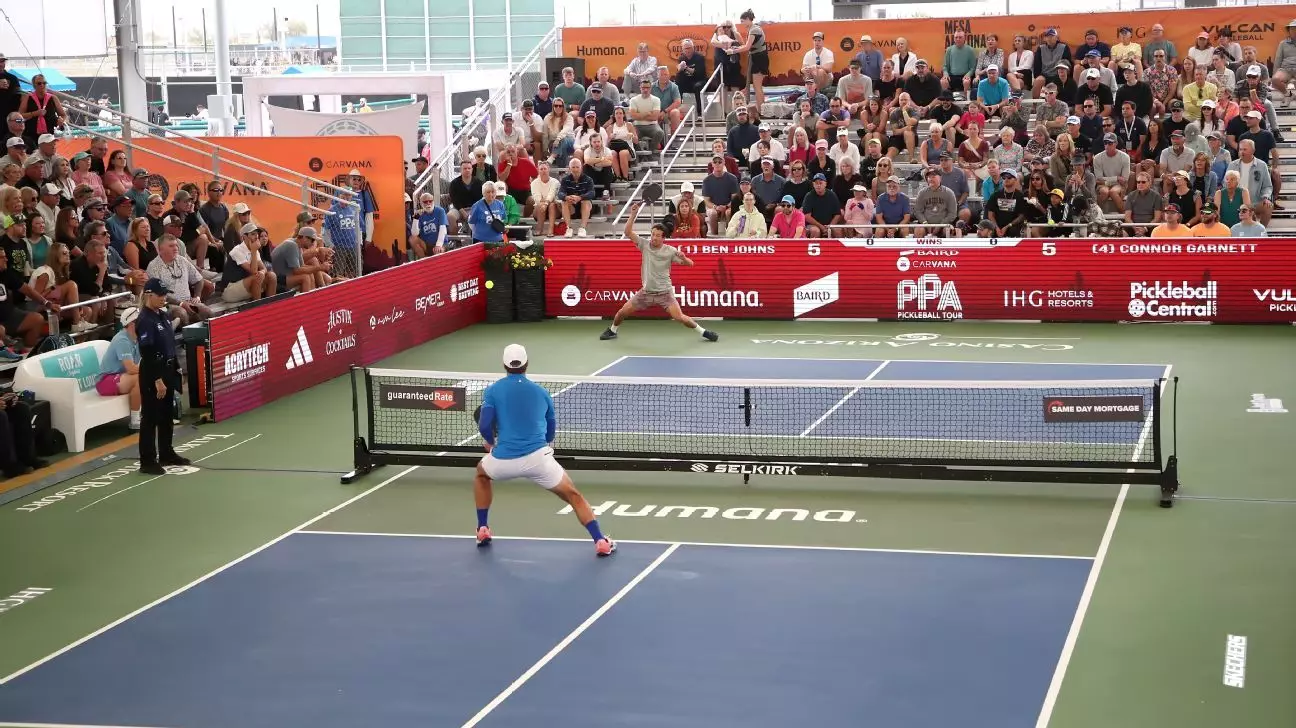The advent of the World Pickleball Players Association (WPPA) marks a pivotal moment in the sport’s history—one that signifies professional players taking control of their destiny. For years, athletes in pickleball operated largely under the influence of leagues and organizers, often without a unified voice. Now, for the first time, they are banding together to create an independent, player-led organization poised to reshape the landscape. This move isn’t merely about collective bargaining; it’s a declaration of athletes asserting their rights, demanding accountability, and pushing for a fairer environment that respects their contribution to the sport’s meteoric rise.
This development accentuates a broader trend across professional sports—athletes seeking greater agency amid the commercial and organizational forces that often prioritize profit over player welfare. The WPPA’s formation, under the guidance of seasoned advocates like Harry Marino and backed by Sports Solidarity, exemplifies a new era where players recognize their collective strength. They are no longer passive participants but active stakeholders demanding a seat at the table.
Challenging Traditional Hierarchies: A Call for Fairness and Transparency
The motivations fueling this movement reveal a deeper frustration with the status quo. Players have long felt sidelined by opaque decision-making processes, inconsistent ranking systems, and a lack of safeguards around health, safety, and player welfare. Collin Johns’ emphasis on establishing “minimum standards” underscores a desire for equitable treatment regardless of skill rank—an acknowledgment that talent and dedication deserve recognition and respect, not just a paycheck.
In essence, the WPPA seeks to democratize decision-making, ensuring that every player, from elite professionals to emerging talents, has a voice. Their insistence on transparency regarding compensation and scheduling suggests a desire to strip away arbitrary practices that have historically marginalized or disenfranchised many competitors. This push aligns with broader societal calls for fairness and accountability, recognizing that athletes’ livelihoods depend on recognition of their skills and efforts.
Not a Threat, but a Catalyst for Collaboration
A common misconception might be to view the WPPA’s formation as adversarial—an attempt to challenge the established leagues. However, the players’ leadership emphasizes a collaborative spirit. Johns’ assertion that the association doesn’t intend to be combative reveals a strategic approach: fostering dialogue, setting shared standards, and encouraging leagues and tournament organizers to embrace reforms voluntarily.
This pragmatic outlook hints at a recognition that change requires cooperation, not confrontation. It’s an acknowledgment that the sport’s growth benefits everyone—players, organizers, sponsors, and fans. By advocating for fairness without antagonism, the WPPA hopes to cultivate an environment where the sport can flourish organically, supported by a foundation of mutual respect and clear standards.
The Power of Unity in a Growing Sport
Pickleball’s explosion in popularity has created a ripe environment for such a change. As the sport transitions from a recreational pastime to a lucrative professional circuit, the stakes are rising. Athletes are increasingly relying on tournament prizes and sponsorships for income, yet many remain classified as independent contractors—limiting their leverage and protections.
In this context, the WPPA serves as a unifying force, helping players advocate for better policies and broader recognition. Their alignment with organizations like the Professional Tennis Players Association not only lends credibility but also highlights a strategic understanding of how athlete-led groups can influence sports governance positively. Such solidarity signals a shift toward a more athlete-centric future—one where players aren’t just pieces on a board but strategic partners shaping the sport’s evolution.
In sum, this movement reflects a fundamental truth: empowerment begins when athletes recognize their collective potential. The formation of the WPPA is more than a milestone for pickleball; it’s a testament to the sport’s maturation and an inspiring example of athletes asserting their rights in an increasingly commercialized landscape. As pickleball continues to grow, so too does the importance of a united, transparent, and player-driven voice championing the sport’s best interests.

